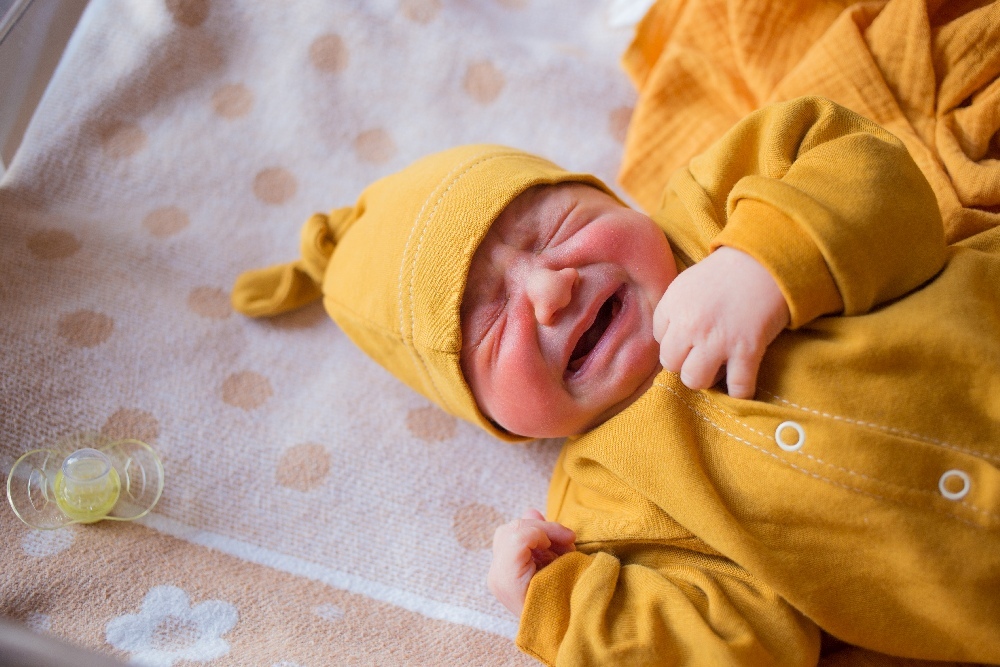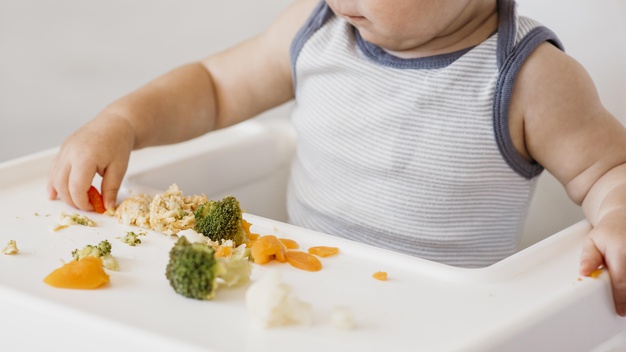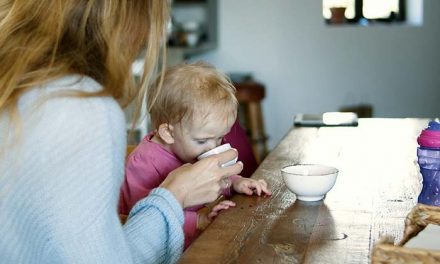Similar to adults, babies also have various smelling gas patterns that mostly depend on what the baby has eaten or what the mommy has had and passed along to the kid via breast milk. A gassy baby is totally common and not something to worry about, given their tiny and immature digestive systems and the fact that they swallow a lot of air while feeding. Moreover, most infants outgrow it by the time they’re 4 to 6 months old, although for a few of the babies gas can last longer.
Gassy Baby Signs And Symptoms:
Look out for these signs and symptoms of baby gas when it is more than usual:
– Your Baby Is Fussy And Cries For Long Everyday
Considering babies have an underdeveloped digestive system, having some amount of gas is completely normal. If you feel that your baby is crying every other day and doesn’t seem to get better, you should check with the pediatrician.
– Your Little One Is Not Sleeping Or Eating Well
There are many reasons why your little baby is not able to sleep. A gassy baby at night can be one of them. Speak to a pediatrician and get the problem diagnosed.
– Your Baby’s Face Is Red When He Cries
Can you see a feeling of discomfort and irritation on his face and you feel that he is in pain? This is a sign that you might have to get it checked.

Gassy Baby Home Remedies:
Burping Two Times:
In addition to burping after feedings, try giving your baby a gentle pat on the back in the middle of the feed to get rid of swallowed air before it travels to the baby’s bowels.
Try To Control The Air:
Whether your baby’s meals come from breastfeeding or directly from the bottle itself, try to make sure that the position of your baby is upright while feeding so as to cut up on the air swallowed by him or her. During breastfeeding, ensure that your baby is properly latched. When bottle-feeding, make sure you use the right angle.
Check Your Diet:
If you’re breastfeeding, check with your doctor if you need to cut down on foods that can cause your baby to be gassy.
Give Your Little One A Rub-Down:
Sometimes a good massage can also help release your baby’s gas. Start with the tummy, then give a gentle rub all over. It might help to relax your baby and eventually pass the gas.
Try Probiotics:
Probiotics are known for supporting the digestive system. Try food rich in probiotics like yogurt. At the same time, be sure to speak to your doctor before giving your baby any probiotic product.
What’s The Best Formula For A Gassy Baby?
Few formulas assure to reduce gas in babies, like formulas with lower lactose, protein hydrolysate-based formulas, or formulas that contain soy instead of cow’s milk. Not much research shows that any one formula is better than others for reducing gas in babies.
If your baby is gassy every now and then but gaining weight, passing urine, and pooping as expected at this age, everything is probably going exactly fine, and you’ll likely just need to wait for a while! Until then, do try these tips and relax!
FAQs On Gassy Baby
How Can I Relieve My Baby’s Gas?
Some ways in which you can help ease your baby’s gassiness is by changing your diet, using the right angle when feeding to reduce the amount of air they swallow, introducing probiotics, and burping your baby twice after feeds.
Why Is My Baby So Gassy?
Most babies get gassy due to the amount of air they swallow while feeding. Other causes could be sensitivities affected by the breastfeeding mom’s diet, or drinking a type of formula that disagrees with them.
Do Gassy Babies Fart A Lot?
Sometimes, gassy babies could fart very often as their digestive systems fall into place. However, passing gas and burping frequently are normal for infants as they grow.






